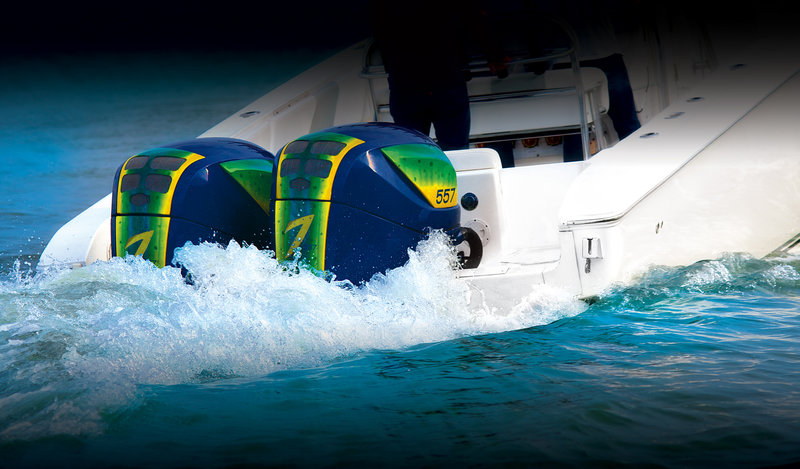Volvo Penta has inked a deal to acquire outboard motor manufacturer Seven Marine, enabling the Swedish company to extend its scope of integrated propulsion systems by getting into the outboard engine market. Seven is based near Milwaukee in Germantown, Wis.
“With this acquisition, Volvo Penta is entering the outboard motor segment," Volvo Penta president Björn Ingemanson said during a conference call on Thursday. “With Seven Marine, we are on a journey to expand the scope of supply with our customers and invest in the growth of a platform to shape the future of the outboard industry.” Ingemanson said the deal should be finalized within a week.
Seven Marine, which produces the most powerful outboard models in the world at 557 hp and 627 hp, was founded in 2010 by a veteran marine technology team and has mostly served the high-end leisure market since then. However, in response to a question from WorkBoat, Ron Huibers, president of Volvo Penta of America, said the commercial patrol boat market is certainly a place where the Seven outboards could find a good fit. “We need to go this way,” he said, adding that designers could use fewer of the larger horsepower Seven outboards than other manufacturers’ smaller outboards. “Two larger engines versus four smaller engines.”
The deal will broaden Volvo Penta’s technology platform, offering a modular, cutting-edge solution, regardless of the energy source, to deliver the desired power in the water. Seven Marine will be able to further develop its existing innovative outboard technology to satisfy a wider range of needs for its premium and exclusive customer base. The acquisition is designed to strengthen the companies combined footprint in the marine market.
“This is an exciting step for Volvo Penta,” said Huibers. “We are combining the strength of two highly innovative companies to deliver an unbeatable engine range for the gasoline segment. We will not only come to market with an extremely attractive outboard solution, but we will deliver the benefits of our world-class service network to a broader range of customers.”
The company’s small block V8 engines are fitted horizontally and leverage modern, automotive quality and technology. This includes use of fresh-water cooling for enhanced durability and corrosion protection and a supercharger to produce excellent performance.
Volvo Penta has over 110 years of experience in engine and propulsion systems, delivering a history of innovations to the marine industry, such as the Aquamatic Sterndrive, Volvo Penta IPS, and Forward Drive. With its current product portfolio, Volvo Penta offers one of the widest ranges of world-class marine diesel and gasoline engines in the industry, Volvo officials said.
Seven Marine will operate as a stand-alone entity retaining its brand, product line and organizational structure. Ron Huibers will be the chairman of Seven Marine and Rick Davis will remain as Seven Marine’s president and CEO.
The use of automotive technology is a common aspect between Volvo Penta’s gasoline sterndrive range and Seven Marine’s outboard motors. Seven Marine’s approach to exploring new techniques and design architecture is a key driver behind Volvo Penta’s decision to become majority owner in Seven Marine.
“We have a shared vision for the future, and this deal provides an ideal platform for us to grow and adapt together,” said Ingemanson. “We will move forward in leading the development of world-class performance and sustainability for the most premium of outboard motor segments.”
With this approach, Seven Marine will benefit from the strength and stability of being part of a larger, international organization.
“This is a great development for us,” said Davis. “As a young company we have pushed ourselves forward to revolutionize the outboard experience in a short period of time. And in partnering with Volvo Penta, we will have a solid backing to continue improving the customer experience through the pursuit of technological and innovation advancement.”




